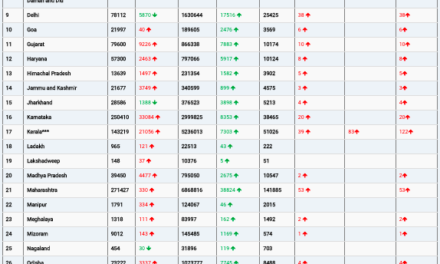In a significant step towards combating the growing burden of tuberculosis (TB) in India, Hyderabad-based startup Salcit Technologies is harnessing the power of artificial intelligence (AI) to revolutionize early detection methods. The startup is set to integrate Google’s Health Acoustic Representations (HeAR) model into its existing product, Swaasa, to enhance the screening of TB using cough sounds.
Google, in a recent blog post, revealed that its HeAR bioacoustic foundation model, launched in March 2024, is trained on an extensive dataset of approximately 300 million audio samples, including roughly 100 million cough sounds. The model is designed to listen to human sounds and identify early signs of disease, making it a potentially groundbreaking tool for TB detection in India.
Salcit Technologies, which launched Swaasa in 2020, has been at the forefront of AI-driven healthcare solutions. Swaasa employs an AI algorithm to assess lung health by analyzing cough sounds, determining whether lungs are functioning normally or exhibiting signs of abnormality. By integrating Google’s HeAR model, Salcit aims to significantly expand its capabilities, particularly in TB detection—a critical need in a country that accounts for nearly a quarter of the world’s TB cases.
“Compared to blood tests and imaging, sound is by far the most accessible piece of information that we can get about a person,” explained Sujay Kakarmath, a product manager at Google Research. “HeAR can pick up chest x-ray findings, tuberculosis, and even detect COVID-19 from cough sounds. In places where access to advanced medical resources is scarce, we can imagine a future where a healthcare professional with a machine learning model and a phone can collect a sample of your sound and inform clinical care. With HeAR, we hope that researchers will be able to discover new acoustic biomarkers a lot faster.”
This innovative approach is backed by the Stop TB Partnership, a United Nations-hosted organization dedicated to ending TB by 2030. Zhi Zhen Qin, a digital health specialist with the Stop TB Partnership, emphasized the potential impact of this technology. “Solutions like HeAR will enable AI-powered acoustic analysis to break new ground in tuberculosis screening and detection, offering a potentially low-impact, accessible tool to those who need it most.”
Google’s blog post also extended an invitation to researchers worldwide to explore the potential of the HeAR model by requesting access to the HeAR API. Through ongoing research and collaboration, Google aims to continue advancing the development of diagnostic tools and monitoring solutions, ultimately improving health outcomes for communities around the globe.
As India battles the ongoing challenge of TB, the partnership between Salcit Technologies and Google represents a promising leap forward in leveraging AI for accessible and effective healthcare solutions.












